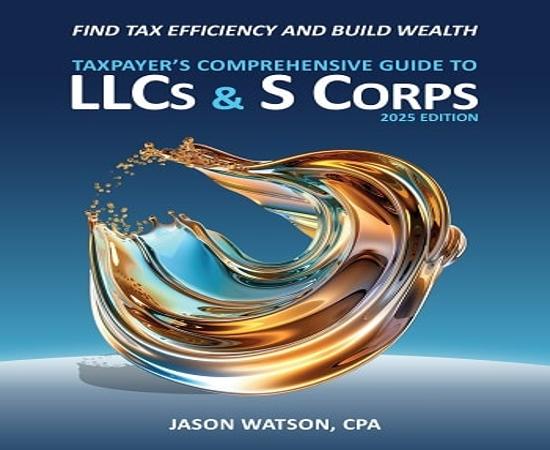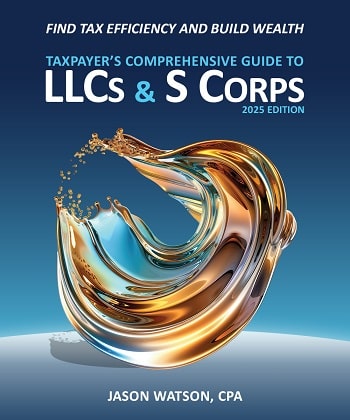The Comprehensive Guide to LLCs and S Corps: A Taxpayer’s Ultimate Resource
Whether you’re a seasoned business owner or just starting out, understanding the intricacies of LLCs and S Corps is crucial for minimizing tax liabilities and maximizing profits. In this comprehensive guide, we’ll delve into the nuances of these business structures, outlining the key benefits, differences, and frequently asked questions.
Introduction
When it comes to structuring your business, the choice between forming an LLC or an S Corp can have significant implications for your tax obligations and legal protections. The Taxpayer’s Comprehensive Guide to LLCs and S Corps, authored by Jason Watson, provides valuable insights and practical advice to help individuals navigate this complex decision-making process.
Benefits of LLCs and S Corps
Both LLCs and S Corps offer unique advantages that can benefit business owners in various ways. LLCs provide flexibility in management structure and limited liability protection, while S Corps allow for pass-through taxation and potential tax savings. By understanding the distinct benefits of each structure, taxpayers can make informed decisions that align with their business goals.
Detailed Explanation
An LLC, or Limited Liability Company, is a popular business structure that combines the liability protection of a corporation with the pass-through taxation of a partnership. This means that owners of an LLC are not personally liable for the company’s debts and obligations, and profits and losses are reported on the individual owners’ tax returns.
On the other hand, an S Corp, or S Corporation, is a tax designation that allows business owners to avoid double taxation by passing corporate income, losses, deductions, and credits through to their personal tax returns. This can result in significant tax savings for eligible businesses.
Frequently Asked Questions
1. Can I change my LLC to an S Corp?
Yes, it is possible to elect S Corp status for your LLC by filing Form 2553 with the IRS. However, there are specific eligibility requirements that must be met, so it’s advisable to consult with a tax professional before making this decision.
2. Are there any limitations on who can own shares in an S Corp?
Yes, S Corps have restrictions on who can be shareholders, including limitations on the number of shareholders and the types of entities that can own shares. Additionally, non-resident aliens are not eligible to be shareholders of an S Corp.
3. What are the tax implications of choosing an LLC vs. an S Corp?
The tax implications of choosing between an LLC and an S Corp can vary based on factors such as income level, business expenses, and state tax laws. While both structures offer tax advantages, the optimal choice depends on your specific business needs and goals.
4. How do I dissolve an LLC or S Corp?
To dissolve an LLC or S Corp, you must follow the specific procedures outlined in your state’s laws. This typically involves filing dissolution paperwork with the appropriate state agency, settling any outstanding debts or obligations, and notifying creditors and stakeholders of the closure.
5. Do I need to have a board of directors for an S Corp?
Yes, S Corps are required to have a board of directors that oversees the company’s operations and decision-making processes. The board of directors is responsible for appointing officers, approving major business decisions, and ensuring compliance with corporate formalities.
Conclusion
In conclusion, the taxpayer’s comprehensive guide to LLCs and S Corps serves as a valuable resource for individuals seeking to optimize their business structures for tax efficiency and legal protection. By understanding the benefits, differences, and procedural considerations of LLCs and S Corps, taxpayers can make informed decisions that set their businesses up for long-term success.


